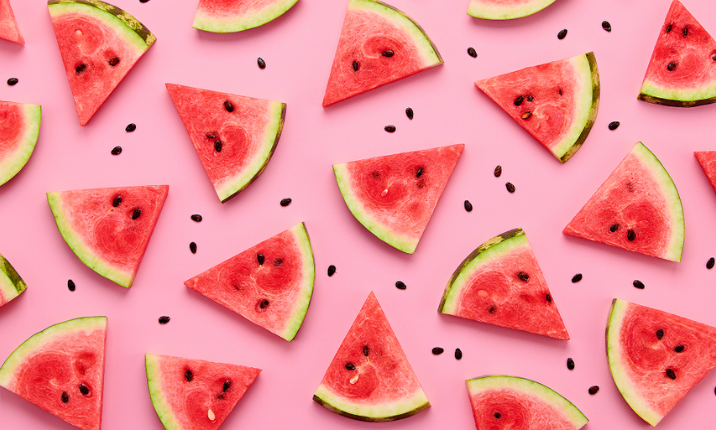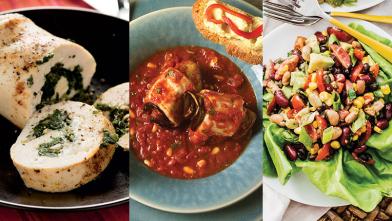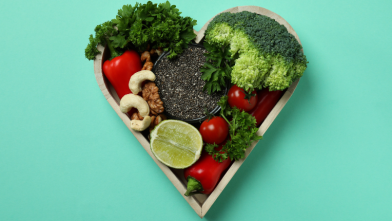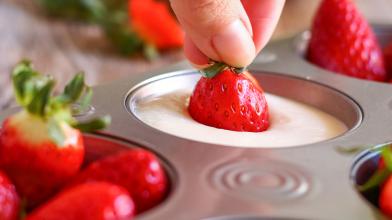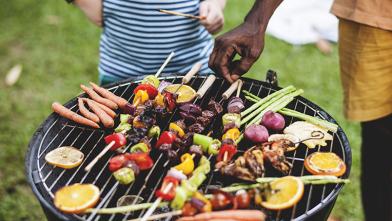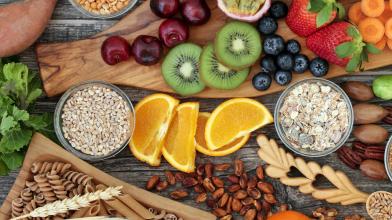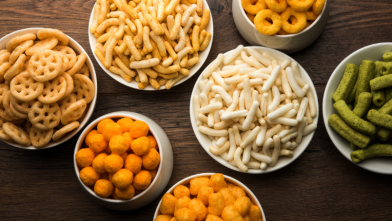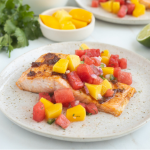
Watermelon is a tropical fruit that is believed to have originated in Africa, but it's now grown all over the world. It's a member of the Cucurbitaceae family, which also includes cucumbers, pumpkins, and squash. Watermelon has a thick green rind and a juicy, sweet flesh that's usually pink or red. It's a great source of hydration, as it contains over 90% water.
Why Watermelon Is Good for You
Watermelon is a great source of vitamins A and C, which are both important for maintaining healthy skin and immune function. It also contains lycopene, a powerful antioxidant that's been shown to reduce the risk of cancer and heart disease. Additionally, watermelon is low in calories which can help with weight management. One cup of diced watermelon contains around 11 grams of carbohydrates, most of which come from naturally occurring sugar. However, the overall carbohydrate content of watermelon is relatively low, making it a great option for people with diabetes.
How to Pick Ripe Watermelon
Choosing the perfect watermelon can be challenging, but there are a few things you can look for to ensure that you're getting a ripe and sweet one. First, look for a watermelon that's symmetrical and free of bumps or bruises. It should feel heavy for its size, and the underside should have a creamy yellow spot which indicates that it's been ripening on the ground. Finally, give the watermelon a tap—if it sounds hollow, it's likely ripe.
How to Store Watermelon
Once you've brought your watermelon home, it's important to store it properly to ensure it stays fresh and juicy. Whole watermelons can be stored at room temperature for up to a week, but once cut, they should be refrigerated and consumed within a few days.
Slicing a watermelon can seem intimidating, but it's actually easy. Start by cutting off the ends of the watermelon so it can stand upright. Then, cut the watermelon in half lengthwise. From there, you can slice it into wedges or cubes, depending on your preference.
Creative Ways to Eat Watermelon
There are so many ways to enjoy watermelon, making it a versatile fruit that can be added to a variety of dishes. Here are a few ideas to get you started:
- Cut it into cubes and toss it with feta cheese and fresh mint for a refreshing summer salad.
- Blend it with ice for a delicious watermelon slushy.
- Grill watermelon slices for a unique twist on a classic summer BBQ.
- Make watermelon salsa by combining diced watermelon, red onion, jalapeno, lime juice, and cilantro.
Recipes with Watermelon
Ready to start using watermelon in your cooking? Try out these three watermelon-centric recipes that are perfect for people with diabetes!

Chipotle Salmon with Watermelon Salsa
This baked dish comes together quickly for an easy weeknight meal that is packed with nutrients and flavor. Perfect for people with diabetes, the subtle spice of chipotle salmon is balanced out by the bright, sweet flavors of a fresh fruit salsa made from watermelon and mango.
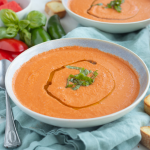
Cool off from the summer heat with this refreshing watermelon gazpacho! Gazpacho is a chilled soup that requires no cooking and uses fresh, blended vegetables. That makes it a great summer recipe you can serve at your next BBQ.
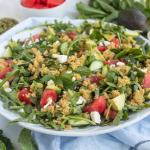
This watermelon quinoa salad is packed with nutritious veggies and filling quinoa that will keep you full for hours. Try making this during the summer when watermelon is in peak for a burst of flavor.
Watermelon is not only delicious but also incredibly nutritious. With its high-water content and low-calorie count, watermelon is the perfect sweet snack for people with diabetes. Sign up today for the Diabetes Food Hub® e-newsletter for more diabetes-friendly recipes every month!
